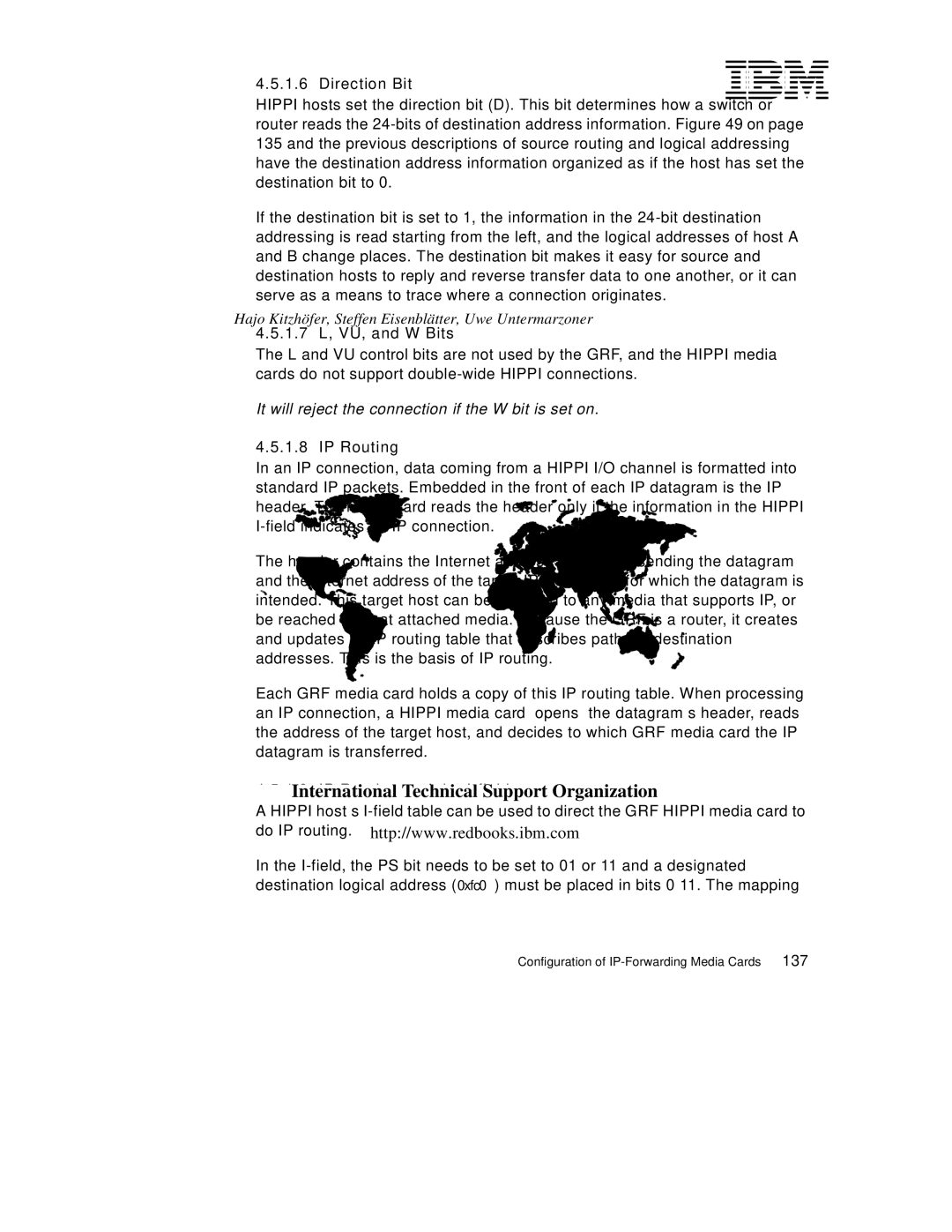4.5.1.6 Direction Bit
HIPPI hosts set the direction bit (D). This bit determines how a switch or router reads the
If the destination bit is set to 1, the information in the
4.5.1.7 L, VU, and W Bits
The L and VU control bits are not used by the GRF, and the HIPPI media cards do not support
It will reject the connection if the W bit is set on.
4.5.1.8 IP Routing
In an IP connection, data coming from a HIPPI I/O channel is formatted into standard IP packets. Embedded in the front of each IP datagram is the IP header. The media card reads the header only if the information in the HIPPI
The header contains the Internet address of the host sending the datagram and the Internet address of the target IP media host for which the datagram is intended. This target host can be attached to any media that supports IP, or be reached via that attached media. Because the GRF is a router, it creates and updates an IP routing table that describes paths to destination addresses. This is the basis of IP routing.
Each GRF media card holds a copy of this IP routing table. When processing an IP connection, a HIPPI media card “opens” the datagram’s header, reads the address of the target host, and decides to which GRF media card the IP datagram is transferred.
4.5.1.9 IP Routing and the I-field
A HIPPI host’s
In the
Configuration of | 137 |
